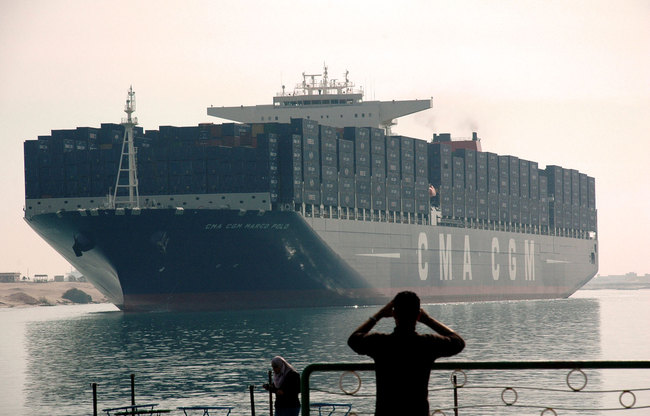
(AFP Photo)
The size of expatriate remittances worldwide is about $80bn annually, according to the Director of the Migration and Remittances Unit at the World Bank (WB), Dilip Ratha.
“The value of Egyptian expatriates’ remittances doubled more than once over four or five years, and is estimated at about $20bn,” said Ratha in a video interview on the WB website. “This is three times larger than Suez Canal revenues and government can’t be interfered with, or in the manner of expenditure.”
He added that some countries, including Egypt, are considering imposing taxes on the transferred money from outside. Ratha, however, described this as “irrational thinking”, as the remittances are economically beneficial personal funds that are often invested in economic projects.
Ratha revealed that expatriates face problems regarding their remittances, as exchange companies raise interest imposed on their remittances.
He stressed that expatriates in Dubai, Riyadh, Paris or London pay from approximately 6% or 8% up to 12% interest, which is not normal. According to Ratha, if interest is reduced to 1%, it will provide $30bn a year, especially as expatriates do not receive any benefits on their money saved in the host country.
“Egypt issued bonds and sold to expatriates with interest rates of 2% to 3% to reach these savings, which reaches $500bn,” added Ratha.
There are currently approximately 250 million expatriates around the world creating an economy of nearly $436bn.
Remittances are still an important source of external resource flows for developing countries, and are characterised as superior to official development aids. They are also more stable than debt and capital investment flows.
Arab expatriates transfer $51bn annually to their countries annually, a report of the WB released in April 2014 said.
According to the report, Egypt topped the list of Arab countries in terms of expatriate remittances, sending back approximately $18bn to the country. Second placed Lebanon receives an estimated $7.7bn. Moroccans have transferred $6.8bn, Jordanians $3.8bn, and Palestinians transferred $3.3bn.
The WB predicted an increase of Arabs remittances in the coming two years, especially as countries in the region provide a large number of immigrants and expatriates.




